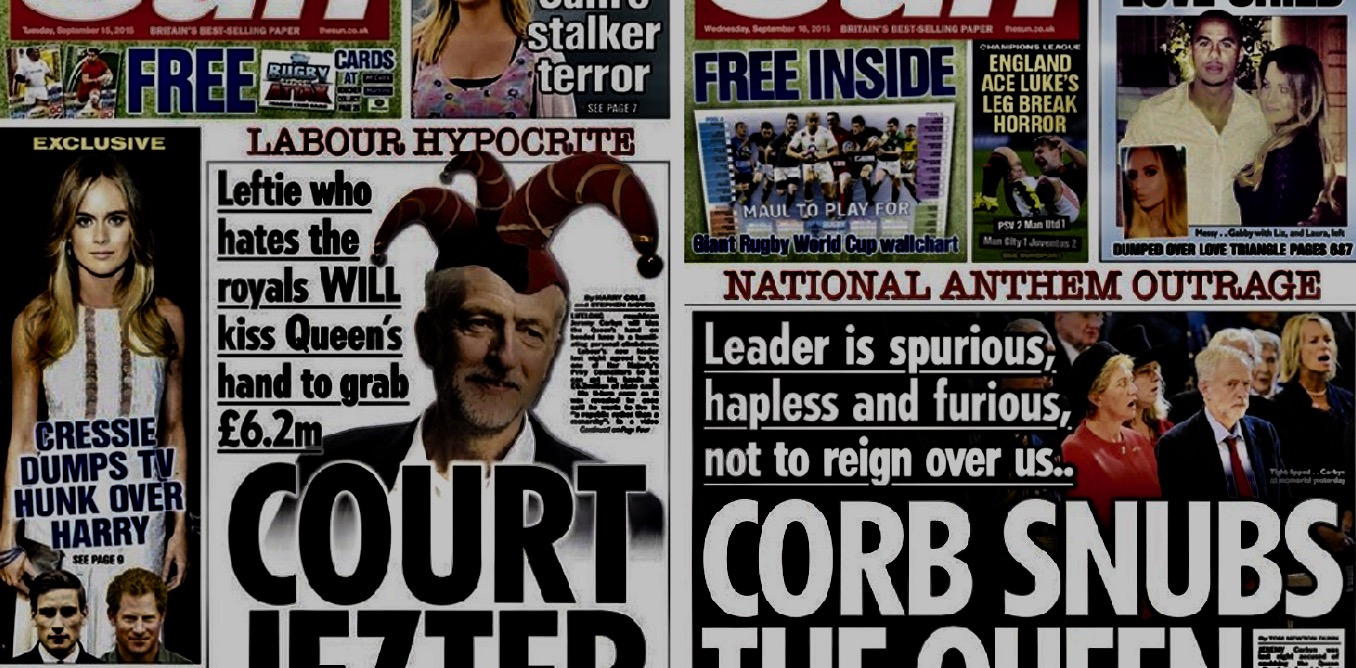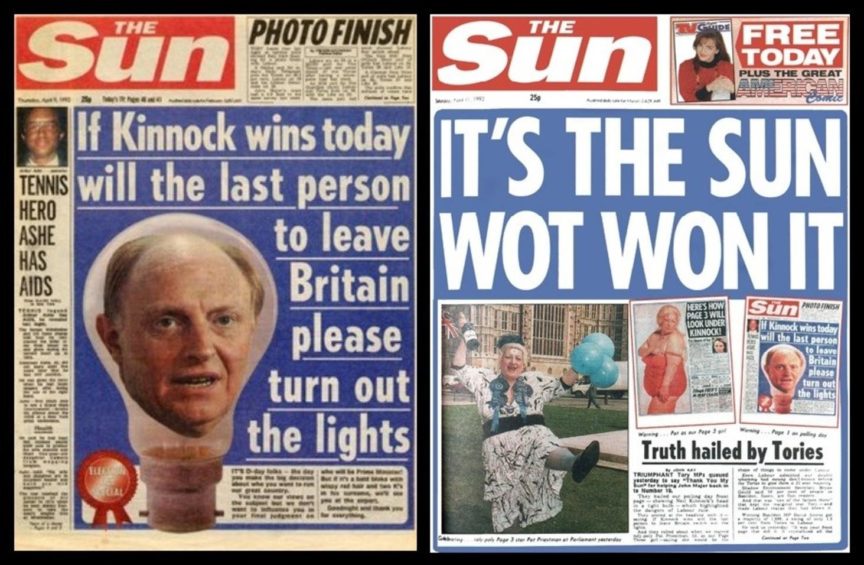The Media Is Biased Against Jeremy Corbyn – but Does That Even Matter in This Election?
by Bart Cammaerts
6 November 2019

On 11 April 1992, Murdoch-owned redtop newspaper The Sun ran with the headline ‘It’s the Sun Wot Won It’, proudly proclaiming to have handed a general election victory to Conservative John Major, to the detriment of ‘evil’ left-winger Neil Kinnock. However, a few years later, scientific research found ‘no support’ for this bullish claim.
This example, along with similar studies in other political contexts, demonstrates that media power is not straightforward, and that media influence tends to be over-estimated and more often assumed than strong, direct and always persuasive. While this does not imply that the media has no power at all, we do need to acknowledge that it is just one of many interacting factors in the process of political opinion-making; others include personal experiences and life trajectories, economic conditions, family background, peers and friends, personal convictions and beliefs, class, gender and sexuality, all of which influence in various ways how we position ourselves politically.

The extent and nature of media power is thus debatable and contested, but that the press in the UK is predominantly biased to the right of the political spectrum, to varying degrees, is not. Apart from a few liberal, left-leaning newspapers, the UK press tends to frame politics, politicians and the world from a rightwing to a radical rightwing ideological perspective.
This is not new nor surprising, especially if we take into account the extent to which media ownership is concentrated in a few hands, and the lack of media diversity in the UK press landscape. As the Media Reform Coalition quite rightly points out:
“Just three companies dominate 83% of national newspaper circulation; five companies account for 80% of national newspaper newsbrand reach; five companies command 80% of local newspaper title.”
Furthermore, many of these companies, especially those whose readerships are the highest, are owned by oligarchic billionaires whose interests do not exactly align with those of ordinary working people, unions or a progressive politics.
While there exists such a thing as editorial independence, and research points to conflicting evidence regarding whether or not media owners directly intervene in editorial decisions, these same owners do hire and appoint those that do make these decisions, who in turn hire the journalists who are expected to toe a particular line and fit the ideological filter of the newspaper. Noam Chomsky once responded to an annoyed Andrew Marr, who vehemently denied that he was practicing ideological self-censorship as a journalist, by saying:
“I don’t say that you’re self-censoring—I’m sure you believe everything you are saying; but what I’m saying is, if you believed something different, you wouldn’t be sitting where you are sitting.”
When it comes to elections in the UK, broadcasting has to abide by ‘special impartiality requirements’, enforced by Ofcom, but the written press does not have similar obligations to represent all candidates and parties fairly and evenly. So, during the election period, I fully expect the majority of the written press to strongly support Boris Johnson and the Tories, and to ramp up its long-lasting campaign of delegitimising and demonising Corbyn and Labour. In other words, it will continue to act as an ‘attackdog’, rather than as a watchdog, as we concluded in our study of Corbyn’s media representation in 2015.
His near-victory in 2017 was seen by many of Corbyn’s supporters, however, as evidence that the negative media framing was not working and that his relative absence in the mainstream press did not matter, that media power was less powerful; the Sun had not won it. This could, however, also be turned on its head by arguing that if Corbyn had been treated more fairly and evenly by the press, he might have won a majority in 2017.
One of the main arguments for claiming that the mainstream media is not that relevant any longer, is the emergence and profuse use of social media by all political actors, enabling them to disintermediate – to cut out the mediating journalist and establish direct channels of communication between the politician and the electorate. And, indeed before and even more so after the announcement of elections, political advertising and messaging by all political parties on social media has been pervasive and keeps being ramped up. It is even more difficult to assess what the impact of this is or will be, compared to the effects of tabloid media in the 1990s.
All the information social media companies hold on our political views, affective state of mind and socio-demographics, are being sold at a hefty price to political actors who can direct very specific and biased messaging and propaganda at very specific people in very specific constituencies that matter. This might very well be the dark horse race of this election in terms of media and political communication influence: media power versus social media power, game on!
Bart Cammaerts is a professor of politics and communication at the London School of Economics and Political Science.